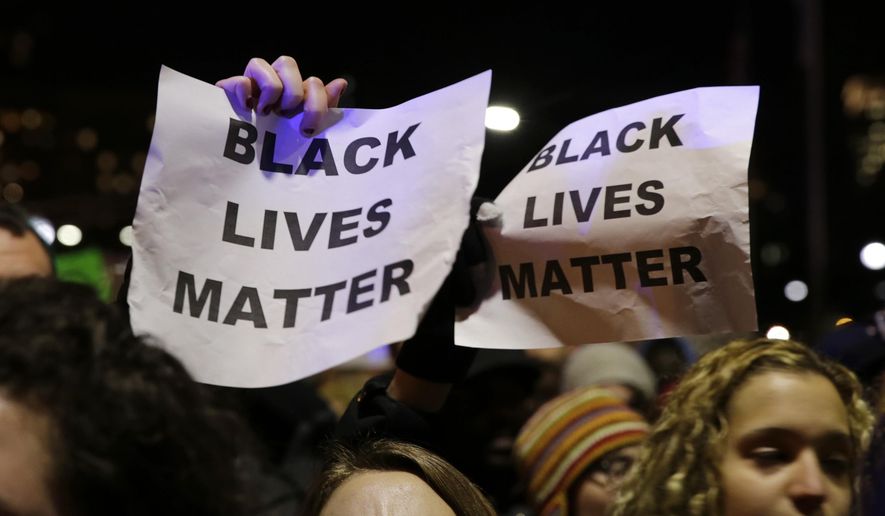Law enforcement in New York City has deployed undercover police officers to attend events related to the Black Lives Matter movement and has kept details on the activities and whereabouts of activists and members of the media alike, , new documents reveal.
The documents, obtained by The Intercept through freedom of information requests, is among the “first documented proof of the frequent presence of undercover police at Black Lives Matter protests in the city of New York,” journalist George Joseph wrote this week.
Requests filed with the Metropolitan Transit Authority and the Metro-North Railroad for details concerning those groups’ interactions with Black Lives Matter activists returned nearly 300 documents, Mr. Joseph wrote, including internal correspondence in which officers exchanged minute-by-minute updates from protests waged in the Big Apple between December and February.
In one document, a dispatch from demonstration held on Martin Luther King Day at Grand Central Station, an officer alerts others that they’ve spotted Jose LaSalle, a volunteer with Cop Watch, a nationwide group that monitors law enforcement activity. In another, MTA’s apparent liaison with the city police’s counterterrorism division warns colleagues that Alex Seel, an artist and activist described by the official as a “photographer/videographer,” has arrived at a protest. In both instances, the communiques include detailed images of either individual.
“I’m pretty sure that photo is from Penn Station, so they definitely had it on file
or something,” Mr. Seel told The Intercept.
“If you look at my A14 pictures, I caught some serious stuff — cops pushing people over — that’s my take on it,” he added, an apparent reference to an offshoot anti-police brutality movement, “So it’s definitely a fear tactic used to break down certain aspects of the movement. They know that we’re the lens of the movement.”
Black Lives Matter is an activist movement that got its start two years ago after George Zimmerman, a neighborhood patrolman, was acquitted in the shooting death of Trayvon Martin, an unarmed black teenager. Similar tragedies in the months that followed, including the deaths of Eric Garner in New York and Michael Brown in Missouri, both at the hands of law enforcement, has given the movement’s calls for reform a somber but significant boost.
MTA spokesperson Adam Lisberg said in a statement to The Intercept that his agency, which manages transit, buses, subways, trains, bridges and tunnels in New York and surrounding areas, “must ensure the safety and security of millions of people who pass through our railroad systems every day, at a time when transportation networks have been persistently targeted by terrorists.”
“We accommodate peaceful protest in our transportation system, while also ensuring that protest activities do not prevent customers from using the system for transportation. We take all appropriate police measures to ensure the safety and security of our customers, but we do not discuss the particulars of those operations,” he said.
• Andrew Blake can be reached at ablake@washingtontimes.com.




Please read our comment policy before commenting.